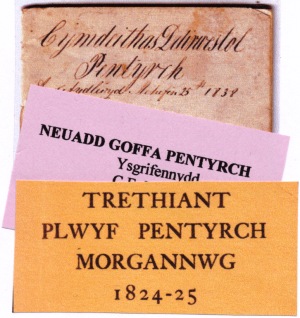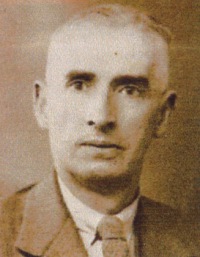Given the proximity of Pentyrch to Anglicised Cardiff the survival of the Welsh language in the parish well into the twentieth century was remarkable. The census of 1901 shows that thae were over 400 persons whose only Ianguage was Welsh. Nearly half a century later there were still over 200 Welsh-speakers in upper Pentyrch alone (and nearly as many in Gwaelodygarth). The Iocal dialect is that of Gwenhwyseg (the language of East Glamorgan and Gwent). One reason for the survival could be the famous insularity of the local community. Sayings such as `Bit rhyddoch chwi gwyr Pentyrch' and `Rhwng Gwyr Pentyrch a'i gilydd' known throughout Wales indicate that these people should be left alone! Such vitriol has nothing to do with the language of course for the contempt was ages-old. Verses condemning local people abounded. One sums up the view of inhabitants of the Vale of Glamorgan.
|
 |
|||
| The vast majority of street names and those of private dwellings and farms have traditionally been in the native language. Societies such as the 'Ivorites' who met at the Colliers Arms and the 'Oddfellows' whose base was the King's were dedicated to the cause of the language. Old Customs such as the Mari Lwyd ensured the unique local dialect's continued use.
Professor Griffith John Williams, the leading Welsh historian of his time said: “Pentyrch was always well-known for its Welshness – its zeal for everything Welsh. When the surrounding areas were being drowned by a |
 |





